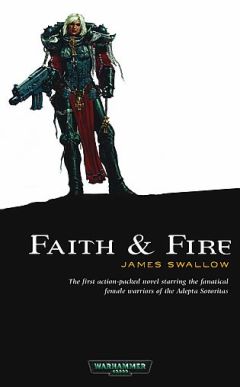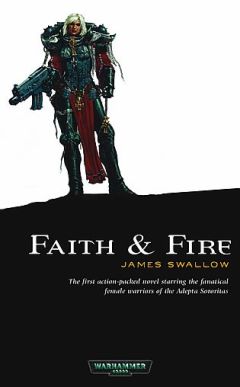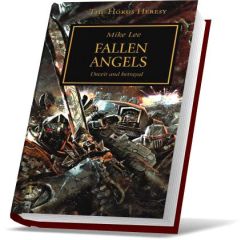Пользователь - WORLDS END
Ja, gewiss, said the farmer, he knew the Herr Comptroller-General; he was the business manager of all these properties, and had several assistants, or heads of departments. He had four sons, of whom three were in the army. The farmer knew the jungen Herrn Kurt Meissner, a fine lad, he studied music, and would probably play at some of the festivals. Then Lanny was told about the noble family, the wife and the sons and daughters and brothers and sisters of Seine Hochgeboren. The farmer was a tenant of the estate, but it was so big that he did not get off until the second station beyond that of the castle. When they came to the latter, he insisted upon taking Lanny's bags and carrying them out to the platform for him; he bowed and touched his hat, and was still doing it when Kurt came running up and grabbed Lanny.
My, how happy those two lads were to see each other again; and how many handshakes and pats on the back they exchanged! Snow was falling, making a blur of the station lights. Kurt had a sleigh with a fine team of horses; he tucked Lanny in under a big fur robe and gave him a pair of mitts to put on, and away they went. They couldn't see much, but the horses knew the way, winding, to the height on which the castle stood. Lanny talked about his trip,
and Kurt about the festivities which were coming; so much news they had to pour out, and so many plans for their ten days together! Friendship and youth make a delightful combination.
Lanny saw dark masses of buildings with many lights; he got out and was taken indoors and presented to a large family of large people: the father stout, but erect and military, with close-cut gray hair and mustaches trimmed in imitation of his Kaiser's; the kind and comfortable mother, having a great bosom ornamented with a rope of pearls; two sons, tall blond fellows straight as ramrods, with hair cut close like Kurt's, clicking their heels and bowing formally; a sister a year older than Kurt, slender, fair-haired, still in the pigtail stage, but ready to become a temporary mother to a visiting stranger. There were other relatives, a large company, all full of the sentimentality of Christmas and eager to share it with their guest.
Kurt had grown an inch or two since Lanny saw him. He was going to be a fine, tall fellow like his brothers; would he wear a monocle and turn himself into a walking ramrod? Probably so, because he admired them, and would serve his term in the army. His rather severe face was pale, because he had been working hard. But his love of Ordnung would always be tempered with the sweetness of music, and he would be Lanny's friend and appreciate the gay, easygoing disposition which Lanny had got from both mother and father. So, at any rate, Kurt assured him when they were up in Kurt's den which they were to share. He was kind and affectionate, but very serious, and talked grandly about his work and purposes, his devotion to art, and to friendship, something which one did not undertake lightly, but with deliberation and moral purpose.
V
Next morning Lanny looked out of the window and saw the great Schloss, five or six stories high, its roofs and turrets covered with fresh snow, gleaming like a Christmas card in the light of the newly risen sun. The picture made him think of all the fairy tales and romances of knights and princesses that he had ever read. To a boy who had spent most of his life on the Riviera, the mere presence of snow was an adventure; to put on his big overcoat and the mitts that Kurt lent him and go out and run, and see his breath in the air, and throw snowballs and get tumbled in a snowbank - that was fairyland. To go back into the house and be served Pfannkuchen and broiled venison for breakfast, and be told that it had been shot by Seine Majestдt himself - could you beat that for thrills?
The Graf Stubendorf and family were expected on the morning train from Berlin, and it would be better for the guest to see the castle before they arrived. So after breakfast the boys ran up the long drive through the park, and climbed the score of steps to the gray stone building; they "were admitted by bowing servants in blue uniforms, white gaiters, and white gloves. There was an entrance hall three stories high, and a reception room as big as a theater. All the front of the castle had been built in the last century, but there was an old part in the rear which was six hundred years old and had been captured and recaptured in some of those cruel wars which Lanny had been reading about on the train.
The modern part was splendid with white and gold woodwork, and walls upholstered in hand-embroidered silk, and furniture with scarlet brocade. There was a great deal of heavy carved furniture, and the general atmosphere of a museum. The old part was the most interesting to Lanny, because there were a tower and a donjon keep, an armor room, and a refectory having a huge fireplace with a black pot hanging on a hook. Lanny wondered if Pan Zagloba had ever drunk wassail in that hall. He hefted huge halberds and battle-axes, and tried to imagine what the world must have been like when men went about armored like crabs and lobsters.
They walked about the environs of the castle. It was as the farmer had said, a town, the old part medieval and crowded, the new parts well laid out. Stubendorf was a Gutsbezirk, and the Graf was a state functionary, which meant, in effect, that he had his own court of justice, police force, and jail; the feudal system combined with modern plumbing and street paving. But this didn't occur to Lanny, who was living in a lovely fairy tale.
They came back in time to witness the arrival of Seine Hochge-boren and family. The great ones drove from the station in limousines; all the servants of the castle, a hundred or two, were lined up on the steps in costumes of long ago, the men on one side, the women on the other. The uniforms of the men bore indications of their rank, while the women had white aprons and lace fichus and white cotton stockings, and wore their hair in plaits down their backs. All were drilled once a week in a system of etiquette complete to the opening of doors.
The Graf Stubendorf was known in Germany as a poet and aesthete, and also as one of the Kaiser's intimates. He was a large man, stoutish and pasty, with a soft brown beard and gracious smile. His three sons were the orthodox military men with shaven heads and mustaches twisted to sharp points; they marched up the stairs in order of seniority, making grave acknowledgment of the bows of the servants. The mother, an elegant lady dressed in the latest Paris fashion, walked behind her sons, and the daughters walked behind her. Of course that may have been an accident; or it may have been because their Kaiser had prescribed the proper concerns of women - kitchen, children, and church - listed presumably in order of importance.
VI
In the afternoon the boys put on high boots and took repeating shotguns for hunting. Kurt's father had arranged it with the Oberforstmeister, an important personage in a green uniform with silver braid; he furnished them a Jдger, who would carry a rifle for their protection. It was not permitted to shoot roebuck or large game, but there were plenty of hare and pheasants in the forest.
They drove in the sleigh, following a wood road, slowly because of the fresh drifts of snow. They passed racks where the deer came to feed; the great stags lifted their heads and kept watch, but made no move to escape. They behaved like cattle, and it didn't seem much like hunting to go out and take post on a wooden platform, with a high-powered rifle and telescopic sight, and have beaters drive such creatures in front of you. When Lanny's father went after game it was in the Canadian wilderness, where the moose were not stall-fed; or out in the Rockies, where mountain sheep ran like the devil, leaping over boulders high up among the clouds.
Kurt said that would be fun, of course, but in Germany shooting was a privilege of the land owners, and the upper classes made a ceremony of it. The Jдgertold them about the recent visit of the Kaiser. Seine Majestдt had a special uniform, buff in color, and a splendid bird in his hat; he took his post on a high stand, and his entourage watched him shoot buffalo as they ran by, and boars, and stags, picking out the largest with the best heads. Afterward a pile of the game was made and the Kaiser had his picture taken, standing in front of it. A rather expensive sport, because it was estimated that to raise a single stag cost several thousand marks. But Kurt explained that none of it was wasted; the carcasses were distributed among those who had a right to them, and Lanny would eat his fill three times a day.
Lanny had never seen either buffalo or wild boars, and was greatly excited by the idea. The former was not the shaggy American bison, but smooth-skinned creatures that had been domesticated in Egypt and brought to Europe by the ancient Romans; now they ran wild in the forests and were very dangerous if wounded. As for the boars, they did not molest human beings - but still, it was well to have a rifle along.
After hunting through a great stretch of forest, they came upon a clearing with a tiny farm and a cottage that might have been the home of the witch in Grimm's fairy tales. They stopped to rest, and found no witch, but a peasant mother with half a dozen little ones, the boys with bullet heads and the girls with braided hair, all staring with wide blue eyes at die Herrschaften. There was only one room and a shed in back; the beds were shelves against the walls, and a good part of the room was taken up by a large stove, polished like a patent-leather shoe. Everything in the place had been manicured Ъу this lean and toilworn woman, with tendons in her arms showing like whipcords. She was excited by the visit, and ran to get milk for die Herrschaften, as she called them over and over; she stood while they drank it, and apologized because she had nothing better, and because her husband was not at home, and because she had only a hard bench for them to sit on, and so forth. When they left, Lanny looked back and saw a pile of children's faces in the window of the hut, and it stayed with him as one of the sights of Germany.
They returned with a large bag of game, and a still larger appetite. They had a meal to match it, with half a dozen courses of meats and fowl. When they rose from the table they all took hands and danced gaily around it, crying "Mahlzeit!" Afterward they gathered round the piano and sang sentimental songs in melting voices, also Kurt and his guest were asked to show what they had learned at Hellerau. Lanny was echt deutsch that night, and stowed in his memory two lines of poetry which his friend quoted, to the effect that when you hear singing you may lie down in peace, because evil people have no songs.
VII
"Frцhliche Weihnachten" said everybody next morning, for it was the day before Christmas. The young people took a long sleigh ride and saw the country, and in the afternoon they played music, and Lanny danced with Kurt's sister. In the evening the Christmas celebration took place, and there were presents for all the family and the servants; not under the Christmas tree, but on separate little tables, covered with linen cloths. After the tree was lighted, the presents were given out. The Herr Comptroller said a few words, and shook hands with each of his servants, and they all kissed the hand of his wife. Everything was warmhearted, everybody wished happiness to everybody else, and they sang "Stille Nachi" with tears in their eyes.
Next morning they had a preliminary breakfast, eating a long kind of bun called Dresdner Christstollen, with raisins in it and sugar on top; also eggs, and many kinds of homemade jam, and coffee with hot milk. That was supposed to carry you until half-past ten, when you had the so-called "fork-breakfast." It appeared that ideas of diet reform which were spreading among Lanny's American friends had never been heard of in this Prussian province, and such things as Hasenpfeffer, fresh pork sausage, and several other kinds of meat could be eaten in great quantities in the morning.
Later on there was to be a celebration at the Schloss, and everybody dressed, the men in uniforms and decorations, and the ladies with their jewels, silks, and laces. They came in a happy solemn mood as to a church festival. For the tenants and employees it was the one time in the year when they might pass the portals of the great building which dominated their lives. They waited respectfully outside until the last of the dignitaries had entered and taken their places; then the crowd streamed into the great hall, the men taking off their hats before they ascended the steps, the peasant women with kerchiefs or shawls over their heads, curtsying to everybody. Those for whom there were no seats packed themselves around the walls.
Seine Hocbgeboren and family came in by a private entrance, and everybody stood and said "Frцhliche Weihnachten." The pastor said a prayer, quite a long one, and they all stood again and sang a hymn, in such volume as to drown out the organ. The Graf gave them all Christmas greetings in a fatherly talk, full of assurances of concern for their welfare, and declaring the divine origin of "deutsche Treu und Werde." In their happy land, so favored by God, peace and order prevailed, and every man and woman cherished the sacred flame of loyalty in his heart. In this happy Christmas season they renewed their pledges to the Kaiser and Fatherland. The applause which followed seemed to indicate that Seine Hochgeboren was completely justified in his faith.
A great fir tree out of the forest stood in a corner of the hall, and there were presents for everyone, even to the toilworn peasant woman and the half dozen little ones who had stared at Lanny out of the window of the hut. Four men in uniform called the names on the packages and handed them out; but even with this procedure it took long to distribute them all. Not a person left the hall; and Seine Hochgeboren shook hands with each man and woman. Lanny was not bored, because these were Kurt's people, and he was interested to watch their faces and their costumes.
Next day the Comptroller-General went to report to his employer upon the state of affairs. He was invited to a smoker that evening, together with his eldest son. Other neighboring land owners came, and several of the higher officials of the estate, the chief of police, the head forester, and so on. Over pipes and beer they discussed the state of the country, both local and national, and the Graf honored them by reporting upon matters of importance on which he had special sources of information. The following evening Herr Meissner told his family what had gone on at this smoker, and gave his own views of the matters discussed. Everybody in the household listened respectfully to what the stout and imposing father said, and no one ventured to question anything. The guest from a foreign land could not understand all the long words, but listened attentively, and afterward had matters explained to him by Kurt.
![Rick Page - Make Winning a Habit [с таблицами]](/uploads/posts/books/no-image.jpg)



